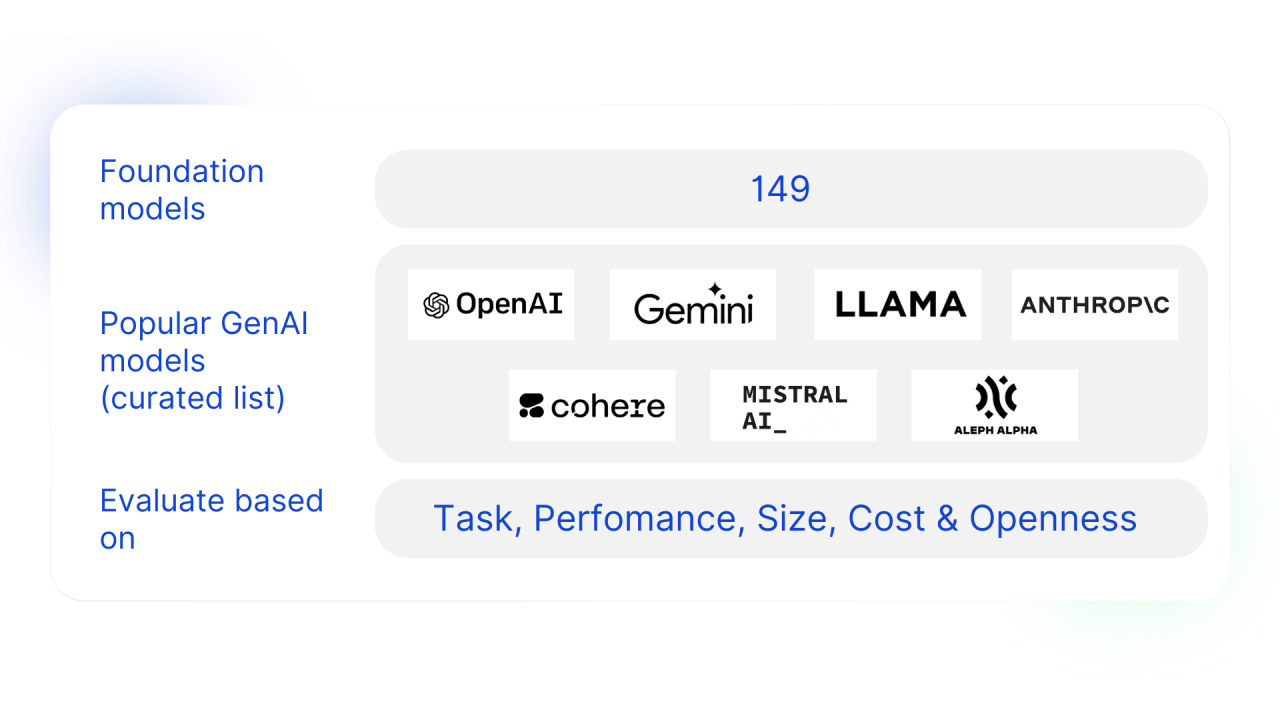
The most popular LLMs and their applications - 7 GenAI models you should know
Matthias Zwingli
CEO & Founder of Connect AI - High-Quality AI Assistants for your Business | Business Angel, Startup Coach & Passionated Kitesurfer ?? | Follow me ?? to stay updated on #GenAI and #appliedAI
149 GenAI models are currently on the market. According to the Standford AI Index Report (2024) there are over 109 companies in the USA alone that provide Large Language Model (LLM) services.
Staying up to date in this space is challenging, especially with over 12 new model releases in just the past week. In our previous newsletter, we delved into the characteristics of LLMs. Today, we explore some of the most popular models and what sets them apart.
The LLM Ecosystem - The 7 LLM Models I follow in 2024
It would absorb way too much time to elaborate all the 149 LLMs. To provide clarity, I've chosen to spotlight the 7 LLM models that, in my view, are the most prominent in the current landscape. While this selection may evolve over time due to the dynamic nature of the market, these models represent significant players as of now.
I start with the most prominent ones: OpenAI's GPT Series, Google's Gemini, Meta's Llama, Anthropic's Claude, Cohere's Command, Mistral's Mixtral, and Aleph Alpha's Luminous. I focus on the strengths and weaknesses of each provider to give you an overview and first level of comparison to help you make a more informed decision of what model is the best fit for you:
GPT-Series OpenAI : Most popular and one of the best-performing LLM models. Known for versatility and performance in text generation, language understanding, and various NLP tasks. The GPT series offers a range of models like GPT-3.5 Turbo and GPT-4.
Gemini Google: OpenAI competitor. Built for multimodality. Strong reasoning across text, images, audio, video, and code. Gemini comes in different versions (Nano, Pro, Ultra).
Llama Meta : One of the most popular open-source models. Comes in model sizes 8B and 70B. Llama 3 just got released on April 18th, 2024.
Claude Anthropic: A versatile model suitable for a wide range of tasks, from lightweight actions to complex analysis. Claude 3 claims on par or better performance than GPT-4.
领英推荐
Command R, etc. Cohere : Practical focus for business applications, offering efficiency and accuracy in real-world scenarios. Three different main models (Command, Rerank, Embed).
Mixtral Mistral AI : The French LLM solution. Offering efficient and cost-effective models in three sizes (Mixtral 7B, 8x7B, 8x22B).
Luminous Aleph Alpha : The German LLM solution. Special focus on the industry's use of LLMs. Available in three different versions (base, extended, supreme).
Three things to remember
My Advice
Start with one of the most popular models and take it as a baseline for the performance that is possible without much individualisation. At Connect AI , we usually begin with a GPT-4 Turbo Model from OpenAI and then tailor our approach based on our clients' specific needs and preferences.
Happy modelling!
New Work & Learning Lead @ Kickstart Innovation | Scaling innovation one company at a time | Startup Whisperer | Matchmaker
5 个月Matt Guio, here is the AI thread I can recommend to hop on!